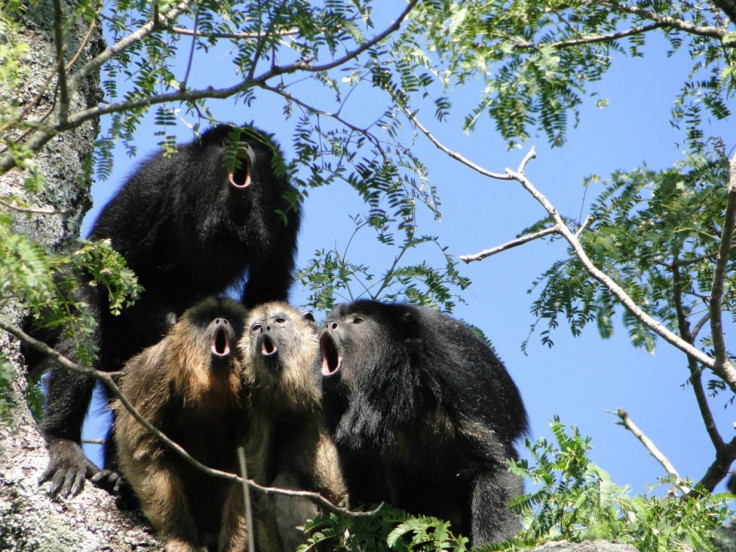The louder the roar, the smaller the balls: Loudest shouting howler monkeys produce less sperm

The loudest male howler monkeys with the deepest voices have had to make an evolutionary sacrifice for their dulcet tones. A study suggests these monkeys have smaller testicles and produce less sperm.
Despite being one of the smallest species of monkey, weighing only up to 7kg, howler monkeys use their loud voices to attract potential mates. However, the research plays into Charles Darwin's theory of sexual selection, which suggests species that have strong characteristics to attract mates but are less efficient at fertilising eggs.
"The idea has been around since Charles Darwin, but this is the first time that anyone actually has demonstrated a trade-off between vocal characteristics before mating and sperm competition after mating," said Leslie Knapp, professor and chair of anthropology at the University of Utah. "Our study shows that Darwin was probably right when he suggested that the roars of howler monkeys are important for reproduction."
Jacob Dunn, of the University of Cambridge, added: "We have strong evidence that howler monkey species that invest in larger vocal organs produce less sperm. This is the first evidence in any species for a trade-off between vocal investment and sperm production."
The monkeys use their long vocal folds with a hyoid bone to make the loud sounds in a bid to make them look bigger than they are. The bigger the hyoid bone, the louder they can shout. But this obviously has its pitfalls, according to the study published in Current Biology.
The international team, originating from the UK, Austria and the US, gathered data on the testicle sizes of 66 howler monkeys across different species. They also used 3D laser scans to analyse the size of over 250 hyoids, with some being up to 10 times larger than others.
"Investment in developing a large vocal organ and roaring may be so costly that there is simply not enough energy left to invest in testes," Dunn said. "Alternatively, using a large vocal organ for roaring may be so effective at deterring rival males that there is no need to invest in large testes.
"In evolutionary terms, all males strive to have as many offspring as they can, but when it comes to reproduction you can't have everything. There is evidence in other animals that when males invest in large bodies, bright colours, or weaponry such as horns or long canines, they are unable to also invest in reproductive traits. However, this is the first evidence in any species for a trade-off between vocal investment and sperm production."
© Copyright IBTimes 2025. All rights reserved.





















